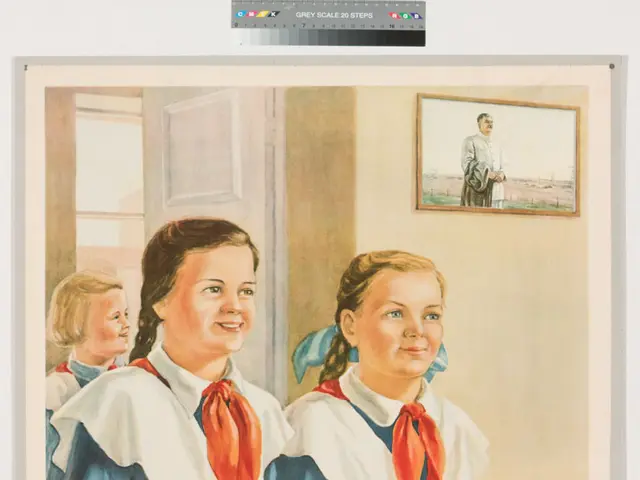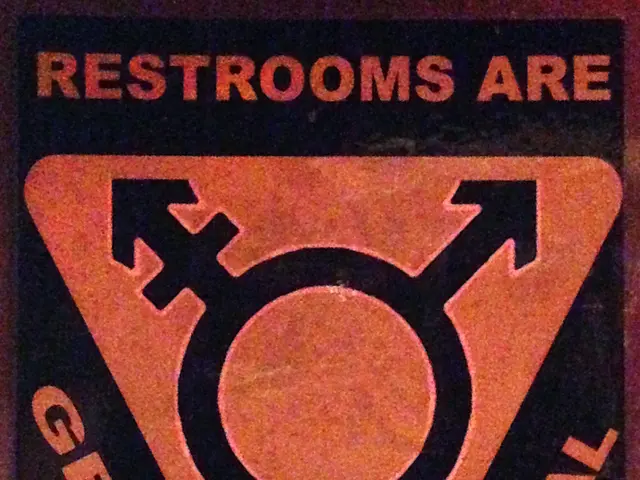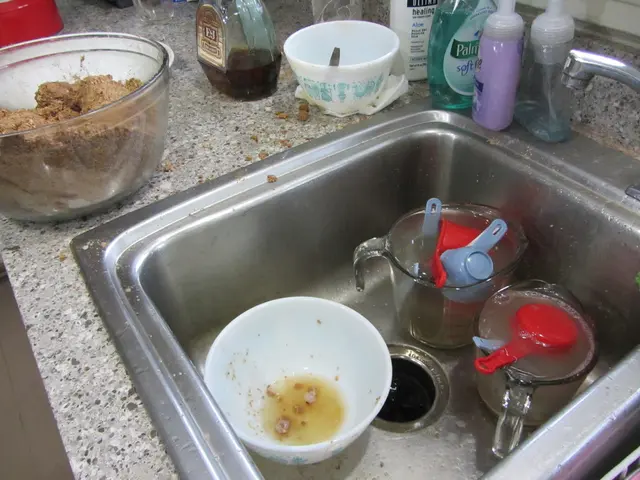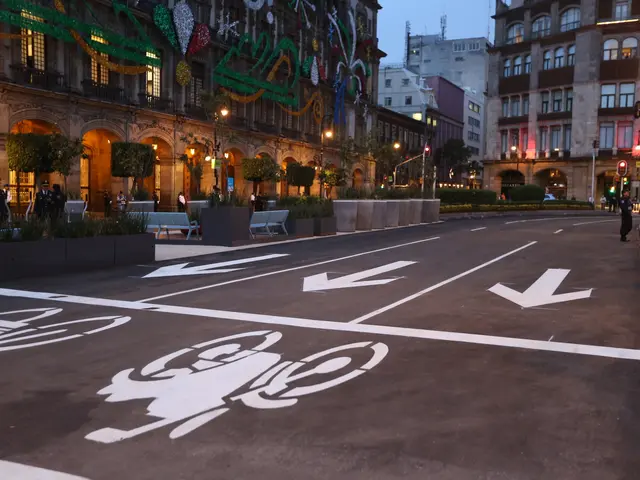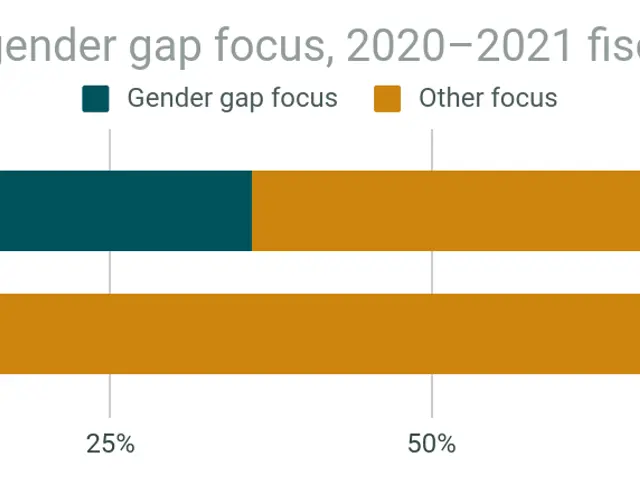Hospital raids lead to forced deportation of pregnant Haitian women and children in Dominican Republic
The Dominican Republic has stirred international outcry by deporting pregnant women, mothers who'd just given birth, and children back to Haiti amidst a tough stance on illegal immigration.
In a statement, Dominican authorities revealed that 135 women and kids were taken to an undocumented migrant detention center on Monday, headed back to Haiti.
This move comes as one of President Luis Abinader's contentious immigration measures took effect, requiring hospitals to demand identification, a job letter, and proof of residence from patients. Hospitals, under the new policy, are subject to verification by immigration agents [1].
On Monday, 33 public hospitals prepared for the policy's implementation. SNS Director Mario Lama mentioned these hospitals typically host up to 80% of public hospital births involving foreign mothers.
Dominican authorities claim these individuals were detained due to the new protocol. They declared in a press release that the deportees were treated with humaneness and dignity. Each individual was sent back on comfortable, safe buses only after being discharged from the hospital and receiving a medical examination to ensure they were free of health risks [2].
Critics, however, including rights and health groups, have denounced the move. The Dominican Medical Association noted the rigid deportation policies could place lives in danger.
The Dominican government insists no one will be denied medical care under the new protocol. Yet, rights groups argue that patients requiring care may avoid hospitals out of fear of deportation.
"These individuals face immediate deportation following care," said Amnesty International. "This puts people's right to health, privacy, and physical safety at risk, discouraging vulnerable groups such as pregnant women, children, and survivors of violence from seeking essential medical treatment" [2].
A Powder Keg Simmering: Haiti's Violence Explosion
For the past six months, Dominican authorities have expelled over 180,000 people to Haiti [3]. Haiti is plagued by gang violence that has seeped into every corner of life, with essential supplies struggling to keep up with the population's needs and hundreds of schools shut by violence [3].
Dozen of health facilities in Haiti have closed due to the insecurity. One of the latest closures came courtesy of the University Hospital of Mirebalais, following a gang-led arson that put both staff and patients at risk [3][4][5].
The United Nations' top Haiti envoy, María Isabel Salvador, warns that Haiti is "approaching the point of no return." She added, "Without timely and decisive international support, the violence will continue to escalate, and Haiti could face total collapse" [3].
Jessica Hasbun contributed to this report.
Enrichment Insights:
- Expanding Deportations and Health Risks: President Luis Abinader's stricter immigration measures, announced in April 2025, demand hospitals to confirm patients' documentation before providing non-emergency care. Undocumented patients, including pregnant women and new mothers, face immediate deportation following treatment. The UN and human rights organizations see a surge in deportations of pregnant and postpartum women, despite international appeals.
- Humanitarian Concerns:
- Medical Access: Vulnerable groups are forced to make a heart-wrenching choice between seeking care and risking deportation, potentially endangering maternal and child health.
- Arbitrary Detentions: Reports illustrate racial profiling and deportations of individuals with legal residency or citizenship, including mothers separated from children.
- Border Militarization: An additional 1,500 soldiers were deployed to the Haiti-DR border, causing concerns about further rights abuses.
- International Response: The UN and NGOs criticize the measures as contributing to Haiti's humanitarian crisis. Critics accuse the DR of hypocrisy for protesting harsh treatment of Dominican migrants abroad while enforcing similarly strict policies at home.
- Policy Justifications vs. Reality: The DR government defends its actions as necessary to protect public services and national identity but is criticized for violating international human rights norms by denying basic healthcare and due process.
- The Americas are witnessing a contentious issue as the Dominican Republic deports pregnant women and children, despite global condemnation of its immigration actions.
- The Dominican authorities have stated that 135 women and children were sent to an undocumented migrant detention center on Monday, headed back to Haiti.
- This deportation move comes as part of President Luis Abinader's immigration measures, requiring hospitals to verify patients' identification, job letters, and proof of residence.
- Hospitals, under the new policy, are subject to verification by immigration agents, raising concerns about the availability of healthcare services.
- On Monday, 33 public hospitals prepared for the policy's implementation, with these hospitals typically hosting up to 80% of public hospital births involving foreign mothers.
- The Dominican authorities claim these individuals were detained due to the new protocol, and they were treated withhumanes and dignity, according to a press release.
- Critics, including rights and health groups, have denounced the move, expressing concerns about the potential impact on the health and wellness of families.
- The Dominican Medical Association has highlighted the rigid deportation policies could place lives in danger, specifically impacting the health-and-wellness of pregnant women, children, and survivors of violence.
- The Dominican government insists no one would be denied medical care under the new protocol, yet rights groups argue that patients requiring care may avoid hospitals out of fear of deportation.
- Amnesty International has stated that the policy puts people's right to health, privacy, and physical safety at risk, discouraging vulnerable groups from seeking essential medical treatment.
- Haiti, which has been dealing with gang violence for the past six months, has faced even greater challenges due to the surge in deportations from the Dominican Republic.
- With essential supplies struggling to keep up with the population's needs and hundreds of schools shut due to violence, health facilities in Haiti are closing due to insecurity.
- The United Nations' top envoy to Haiti warned that the country was "approaching the point of no return" and without international support, violence could escalate further and Haiti could face total collapse.
- The increased deportations have led to a humanitarian crisis in Haiti, with the number of expelled individuals exceeding 180,000 people.
- According to various reports, dozens of health facilities in Haiti have closed due to the insecurity, putting the general health of the population at risk.
- One of the latest closures came courtesy of the University Hospital of Mirebalais, following a gang-led arson that put both staff and patients at risk.
- In addition to the ongoing violence, Haiti faces other challenges such as crime and justice issues, with accidents and fires further exacerbating the situation.
- The learning environment has also been negatively impacted, with schools shutting due to violence, putting the education and self-development of students in jeopardy.
- Political instability in Haiti has also contributed to the crisis, with job-search prospects limited as the economy continues to falter.
- The situation in Haiti has raised concerns in the world of sports, with basketball, football, soccer, baseball, hockey, golf, tennis, auto-racing, horse-racing, weather, and sports analysis all being impacted by the ongoing unrest.
- The weather forecasting industry has also been affected, with forecasts disrupted due to civil unrest and destructive events such as fires and accidents.
- Mixed-martial arts competitions have been cancelled due to concerns about safety and security, while sports betting has declined as betting interests focus on more stable markets.
- In the face of these challenges, efforts are being made to provide family-health, mental-health, and women's-health support to those in need.
- Parenting support is also being offered to help families cope with the impact of the crisis, while skills-training and education programs are being provided to help individuals and families adapt and rebuild their lives.

